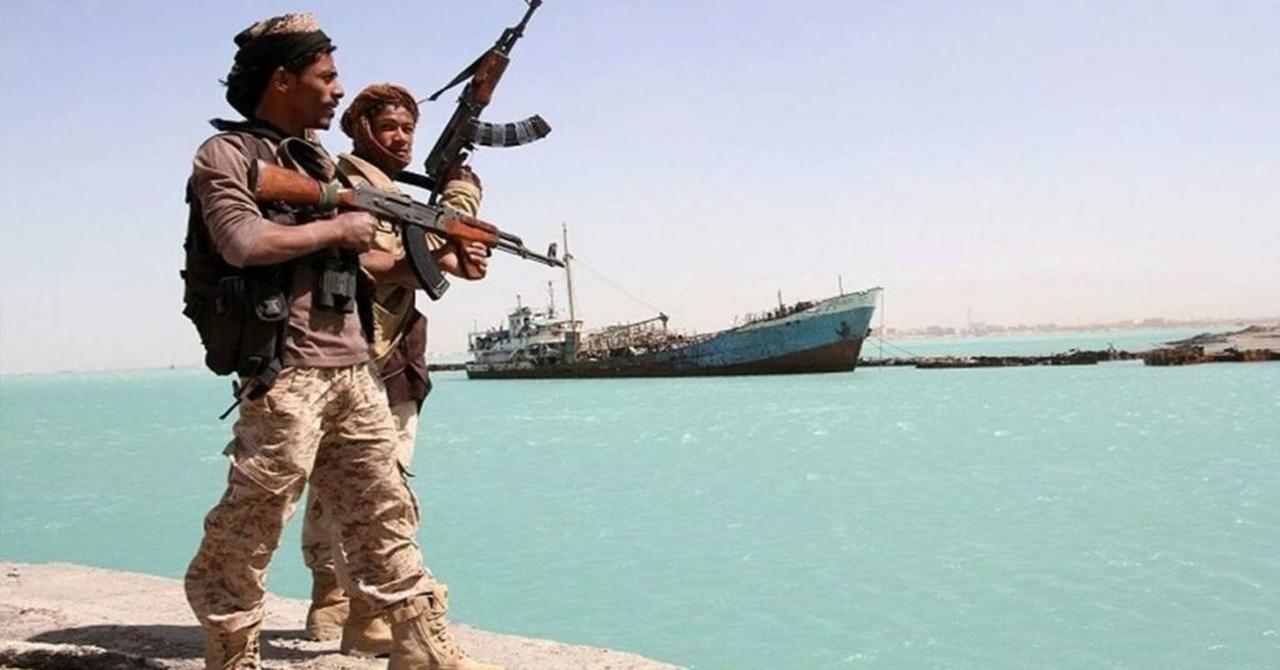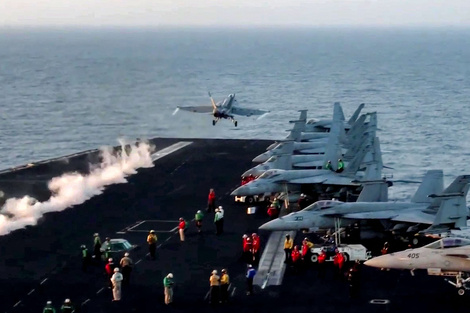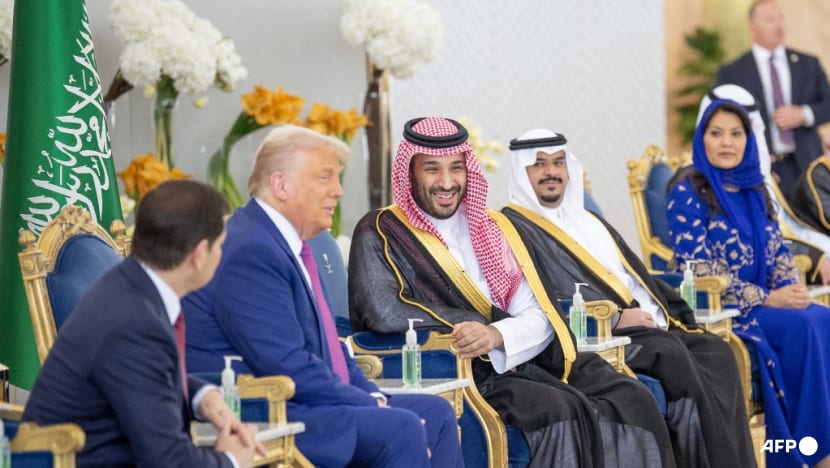
U.S. President Donald Trump left for Saudi Arabia on Monday, calling his Middle East trip "historic." The tour includes Qatar and the UAE, with business deals on the agenda, as well as discussions on regional issues, including Gaza, Iran and Yemen
Emily Milliken, Yemen expert and associate director at the Atlantic Council’s N7 Initiative, stated, “I fully expect the Yemen file to be high on the priority list during Trump’s upcoming Gulf agenda, especially in meetings with U.S. partners like the UAE and Saudi Arabia.”
According to Milliken, the U.S. campaign against the Houthis serves multiple purposes: reinforcing Trump's differentiation from the Biden administration, countering Iranian influence, and solidifying security partnerships with Gulf allies. The decision to launch “Operation Rough Rider” reflects Trump’s desire to advance these points.
The authorized intense air and naval strikes against Houthi targets in early March, under a plan championed by CENTCOM, aimed to eliminate Houthi air defenses and decapitate its leadership, with an ambitious timeline: demonstrable results within 30 days. But by Day 31, the results were underwhelming. The Houthis had shot down seven U.S. MQ-9 Reaper drones and nearly hit advanced fighter jets. Two F/A-18 Super Hornets, each worth $67 million, fell off the USS Harry S. Truman in separate mishaps. The cost of the operation had already topped $1 billion, raising concerns inside the Pentagon over weapons stockpiles, particularly with potential future contingencies in the Indo-Pacific in mind.
Despite over 1,000 strikes hitting Houthi infrastructure and leadership targets, the group remained operational, not having the same effect as the Israeli operation on Hezbollah. President Trump's costly deterrence campaign, for which he does not want the U.S to pay the price, failed to agree on a long-term path forward-debating whether to escalate or seek an exit ramp. The visit may pave the way for clarification and perhaps find an American resolution.

In early May, Oman—already involved in indirect U.S.-Iran nuclear discussions—offered Trump a diplomatic offramp. Under this understanding, the U.S. would pause its campaign and the Houthis would refrain from targeting American ships, though no commitment was made on halting attacks on vessels perceived as linked to Israel.
Trump quickly embraced the proposal. On May 5, Central Command received a directive to halt offensive operations. The announcement came with a surprising tone: Trump praised the Houthis’ resilience, stating they had shown “a lot of bravery,” and declared the campaign a success.
Milliken was among the first experts to emphasize ‘Houthi resilience’. “Despite a forceful military intervention from the Saudi-led international coalition against the group since their 2014 takeover of the capital in Sanaa, the Houthis have maintained, and expanded, their control in Yemen,” she explained. “What began as a small tribal insurgency has transformed into a sophisticated military force with growing international support, particularly in the maritime domain.”
According to her, one of the greatest challenges to eliminating the Houthis lies in neutralizing their leadership, especially their figurehead, Abdel Malik al-Houthi, who has led the group since 2004. Unlike other Iran-backed militant organizations, the Houthis have a dynastic and centralized leadership model, with power tightly clustered around al-Houthi and his family. His removal would not only be a symbolic blow but could also trigger destabilizing internal power struggles, forcing the group to turn inward.

What remains conspicuously absent is a political or humanitarian strategy for Yemen. “The Trump administration is focused on eliminating the Houthis, but there’s no formalized plan for post-war Yemen,” Milliken said. Even in the event of a decisive Houthi defeat, U.S. involvement would likely stop short of nation-building, “leaving reconstruction and governance efforts to Gulf allies or international institutions.”
This reflects a recurring pattern in U.S. Middle East policy—tactical military engagement without long-term stabilization planning. In this view, Yemen becomes a symbolic arena for power projection rather than a locus of sustained investment as is happening in Syria right now.
Yemen’s relevance extends beyond its borders due to its interlinkage with wider regional tensions involving Iran and Israel. According to Gulf affairs expert Mustafa Yetim, the Trump administration has used Oman as a backchannel to communicate with Iran, particularly regarding Yemen and the revival of nuclear talks. The Houthis, perceived by Washington as Iranian proxies, have also launched attacks on Israel, further complicating the regional security picture.
Yetim points out that “Trump’s messages to Tehran have included warnings that failure to engage diplomatically could result in military consequences, with the Houthis presented as part of Iran’s regional footprint.”
This strategic framing has positioned Yemen as a key node in U.S.-Iran rivalry, especially at a time when Trump seeks to reaffirm U.S. commitment to Gulf allies. In this context, Yemen becomes not just a battleground but a lever in broader negotiations involving nuclear proliferation, maritime security, and Israel’s regional standing.

As the latest Signalgate revelations show, the U.S. is not keen to invest too much in Yemen. However, what is discussed during the visit may involve a reassignment of tasks and could be decisive for the future of the region.
As the Trump administration ramps up its regional engagements, Yemen may serve as a case through which Washington can signal resolve, strengthen alliances, and draw contrasts with the previous administration’s policies.
However, the lack of a political vision for Yemen’s post-war landscape raises questions about the durability of any U.S. gains. In essence, Yemen has become less about Yemen itself and more about where the U.S. stands in the broader architecture of Gulf security, great power rivalry, and Middle East diplomacy. The success of Trump’s regional strategy may ultimately hinge not on battlefield victories, but on whether Washington and its partners can offer a viable path beyond conflict.